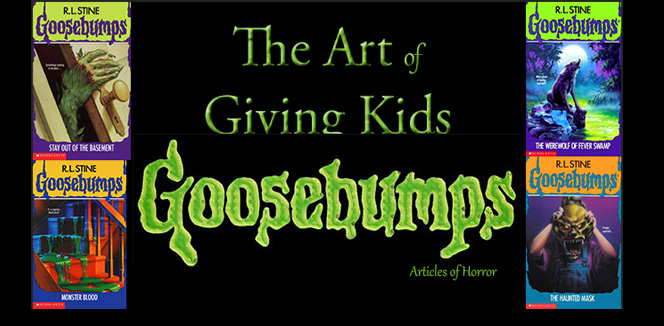Ever since I was a kid, I would stalk the library shelves, my eyes scanning for a book in the Goosebumps series I hadn’t yet read. When I found it, I’d crack open its cover, my eyes falling too fast onto the first sentence. Easy, now. Time to get back to class. You’ll have plenty of time to devour this one later.
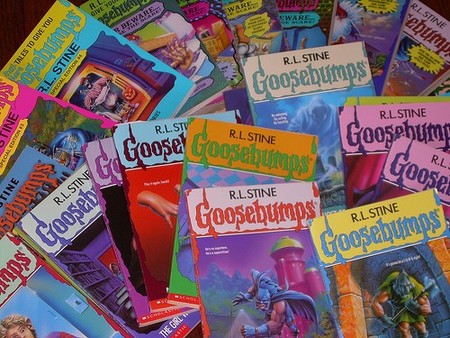
R.L. Stine, author of Goosebumps, its many spin-offs, and over 300 books (183 being of the series), said that the books were initially aimed at girls, but after receiving as much fan mail from boys, the shift changed to include them, too. During the 1990s, encouraging boys to read for fun was a struggle for schools across the nation. Not only were reading comprehension test 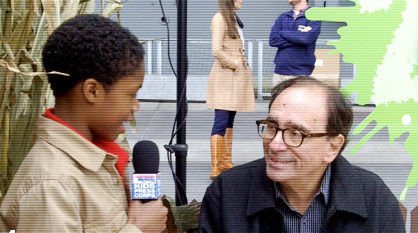 scores averaging higher for female elementary school students, but publishing companies targeted girls because they were most likely to buy and read books overall. Goosebumps shaped and molded the market of children’s literature. When the series ended in 1997, Scholastic saw a 40% drop in sales.
scores averaging higher for female elementary school students, but publishing companies targeted girls because they were most likely to buy and read books overall. Goosebumps shaped and molded the market of children’s literature. When the series ended in 1997, Scholastic saw a 40% drop in sales.
By the end of Goosebumps‘ extremely successful run, Stine is most proud of the fact that he got boys to read. In an interview with The Verge, Stine said, “That was my big achievement. The interesting thing about Goosebumps is it really was 50 percent boys, 50 percent girls. Up until Goosebumps it was very hard to get boys to read anything. So that’s my big achievement, I think. He got boys to read.”
Published from July 1992 to December 1997, 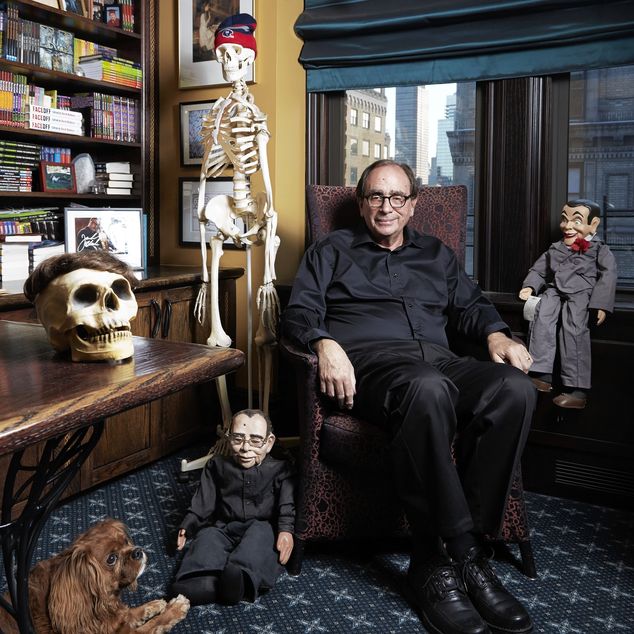 Goosebumps sold 350 million copies worldwide in 32 languages. During that time, numerous books were featured on top best seller lists including The New York Times and USA Today. What the the magic formula to his success? It stemmed strictly from its intended audience. By word of mouth, children promoted the series within their classrooms and groups of friends, fighting over them at libraries and waiting anxiously for the latest edition to hit the shelves. Stine puts it best: “Kids told kids. I think that’s how all the big book crazes started, not by advertising. You can’t really force kids to read something they don’t want. Harry Potter started the same way, I think. Kids telling kids, all over the world. That’s the amazing part.”
Goosebumps sold 350 million copies worldwide in 32 languages. During that time, numerous books were featured on top best seller lists including The New York Times and USA Today. What the the magic formula to his success? It stemmed strictly from its intended audience. By word of mouth, children promoted the series within their classrooms and groups of friends, fighting over them at libraries and waiting anxiously for the latest edition to hit the shelves. Stine puts it best: “Kids told kids. I think that’s how all the big book crazes started, not by advertising. You can’t really force kids to read something they don’t want. Harry Potter started the same way, I think. Kids telling kids, all over the world. That’s the amazing part.”
And yet, the series was not without controversy. Listed at number 15 in a list of books most frequently challenged during the 90s by parents and concerned individuals to “remove or restrict” books from schools, Goosebumps was accused of being “too frightening” and depicted “occult or satanic themes.” These challenges became so frequent, a 1997 hearing by the Anoka-Hennepin School District was broadcast by C-SPAN. Luckily, most of the parents and children did not want the Goosebumps books banned, and so they remained in circulation.
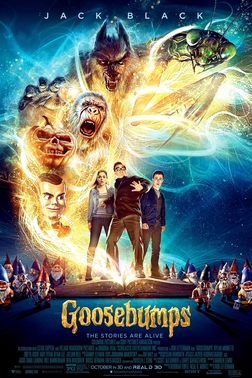
And as time passed, enthusiasm for his work has not ceased. His readers and fans continue to interact with him nowadays on social media. His nearly 200,000 Twitter followers are made up of mostly his original fans. “That’s how I keep in touch,” Stine said. “There are no kids on Twitter. It’s all people (in their 20s, 30s) who read ‘Goosebumps’ and ‘Fear Street’ in the ’90s. They were my huge audience.”
Grown-up kids like myself are thankful to writers like R.L. Stine who did not set out to write books for profit, fame, or to act as another form of parenting. Stine simply wrote to entertain, to make his young audience laugh, feel the adrenaline of fear, and to ignite that spark of page turning curiosity parents and teachers dream of their children discovering. And while we grew up and out of Goosebumps, our cherished childhood memories motivated us into different genres, new authors and, in turn, expanded our appreciation for the written word.
– By Christina Persaud
[DISPLAY_ULTIMATE_PLUS]
Source:
‘I never wanted to be scary’: an interview with R. L. Stine | The Verge. (n.d.). Retrieved from http://www.theverge.com/2015/10/14/9519805/goosebumps-rl-stine-interview
The Deep, Dark Secret Of R.L. Stine: ‘I Never Planned To Be Scary’ : NPR. (n.d.). Retrieved from http://www.npr.org/2015/10/18/449714178/the-deep-dark-secret-of-r-l-stine-i-never-planned-to-be-scary
R.L. Stine aims to give adults ‘Goosebumps’ – CNN.com. (n.d.). Retrieved from http://www.cnn.com/2012/10/09/living/stine-red-rain-adult-novel/
“Emily Osment stars in ‘R.L. Stine’s “The Haunting Hour””. Cape Cod Times. October 26, 2007. Retrieved February 24, 2011.
Goosebumps – Wikipedia, the free encyclopedia. (n.d.). Retrieved September 26, 2016, from https://en.wikipedia.org/wiki/Goosebumps#Achievements.2C_reception_and_controversy
R. L. Stine – Wikipedia, the free encyclopedia. (n.d.). Retrieved September 26, 2016, from https://en.wikipedia.org/wiki/R._L._Stine
“Stine, Jones Win Horror Writers Association’s Lifetime Achievement Award”. Publishers Weekly. February 25, 2014. Retrieved March 13, 2014.
Girls, boys, and reading | Brookings Institution. (n.d.). Retrieved from https://www.brookings.edu/research/girls-boys-and-reading/
[ajax_load_more post_type=”post” max_pages=”1″]

